Quotes & Sayings About Pressure In Studies
Enjoy reading and share 8 famous quotes about Pressure In Studies with everyone.
Top Pressure In Studies Quotes
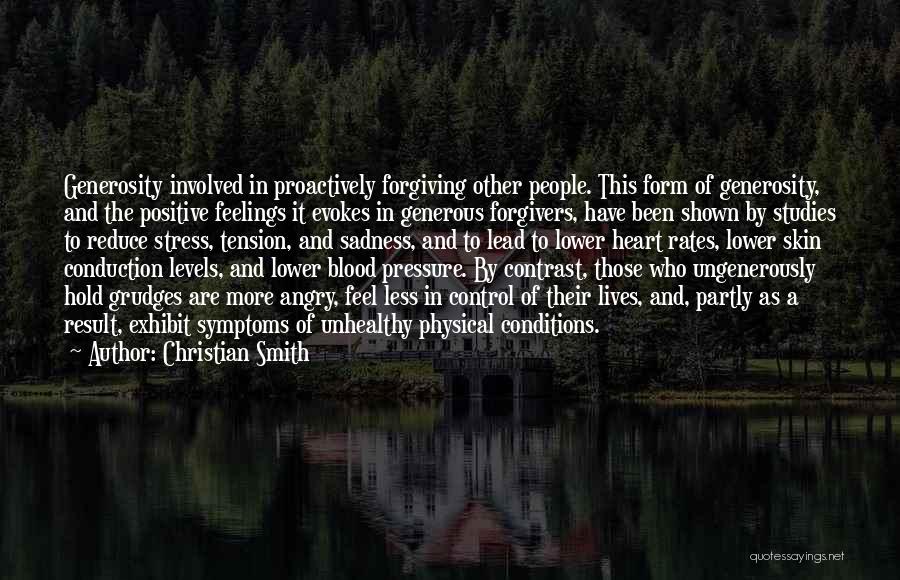
Generosity involved in proactively forgiving other people. This form of generosity, and the positive feelings it evokes in generous forgivers, have been shown by studies to reduce stress, tension, and sadness, and to lead to lower heart rates, lower skin conduction levels, and lower blood pressure. By contrast, those who ungenerously hold grudges are more angry, feel less in control of their lives, and, partly as a result, exhibit symptoms of unhealthy physical conditions. — Christian Smith
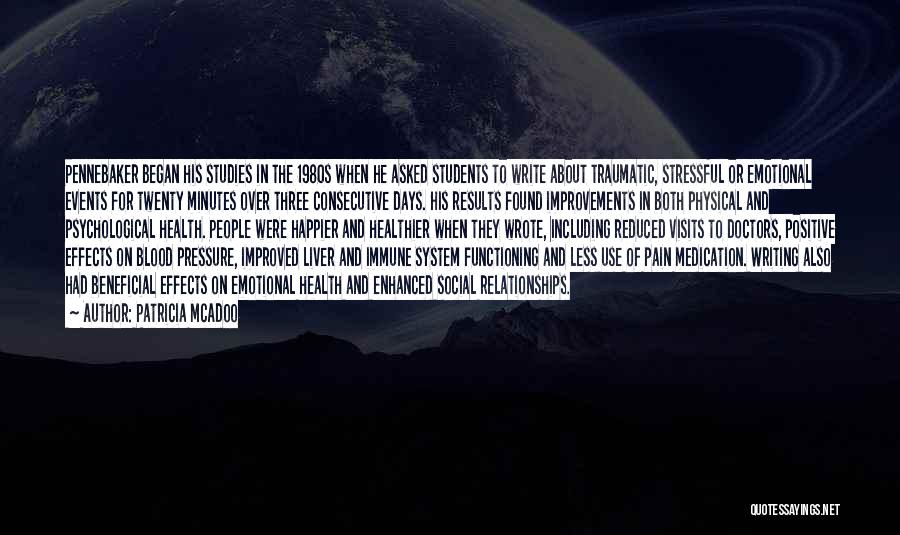
Pennebaker began his studies in the 1980s when he asked students to write about traumatic, stressful or emotional events for twenty minutes over three consecutive days. His results found improvements in both physical and psychological health. People were happier and healthier when they wrote, including reduced visits to doctors, positive effects on blood pressure, improved liver and immune system functioning and less use of pain medication. Writing also had beneficial effects on emotional health and enhanced social relationships. — Patricia McAdoo
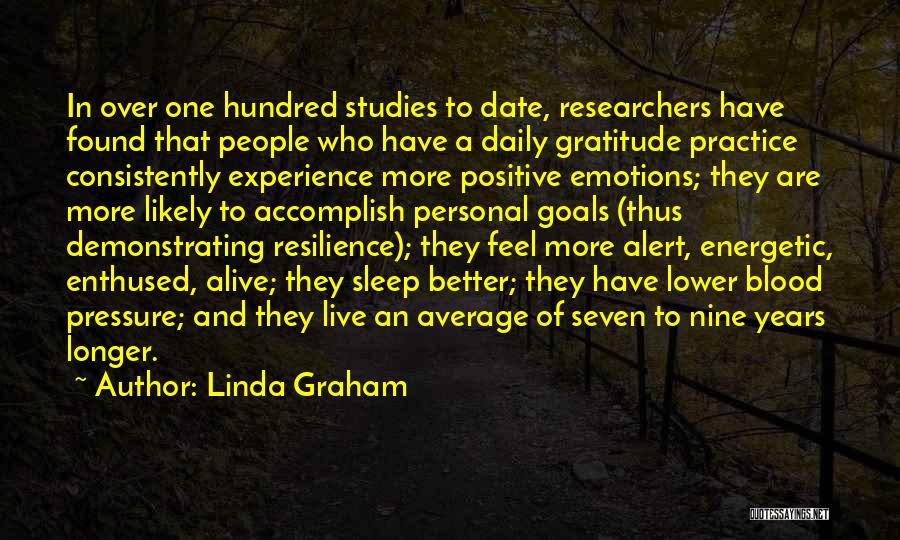
In over one hundred studies to date, researchers have found that people who have a daily gratitude practice consistently experience more positive emotions; they are more likely to accomplish personal goals (thus demonstrating resilience); they feel more alert, energetic, enthused, alive; they sleep better; they have lower blood pressure; and they live an average of seven to nine years longer. — Linda Graham

Yes, dear reader, that's the other reason we cats purr. Arguably, it's the most important reason: to make you happy. Purring is our V - our way of reminding you that you are loved and special, and that you should never forget how we feel about you, especially when you're vulnerable. What's more, purring is our way of ensuring your good health. Studies show that having a feline companion reduces stress and lowers the blood pressure of humans. Cat owners are significantly less likely to have heart attacks than people who live in a catless world. — David Michie
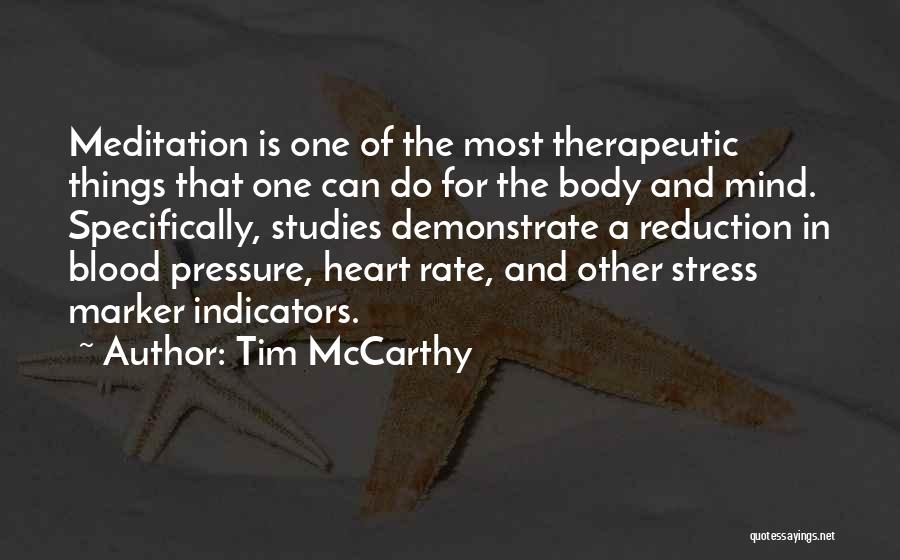
Meditation is one of the most therapeutic things that one can do for the body and mind. Specifically, studies demonstrate a reduction in blood pressure, heart rate, and other stress marker indicators. — Tim McCarthy

And if she liked and trusted the person who asked, she would add that yes, it was kind of a lot to deal with: her outward affect was bright and capable, and that was no illusion, but equally real was the yawning pit of exhaustion inside her. She just felt so tired sometimes. And because of everything her parents asked of her, she was ashamed of being tired. She could not, would not let the pit swallow her up, as much as she sometimes wanted it to. — Lev Grossman
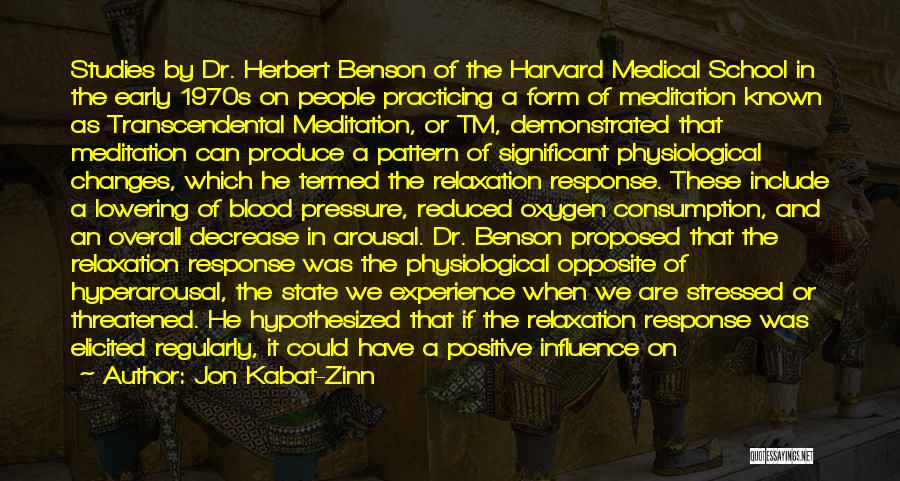
Studies by Dr. Herbert Benson of the Harvard Medical School in the early 1970s on people practicing a form of meditation known as Transcendental Meditation, or TM, demonstrated that meditation can produce a pattern of significant physiological changes, which he termed the relaxation response. These include a lowering of blood pressure, reduced oxygen consumption, and an overall decrease in arousal. Dr. Benson proposed that the relaxation response was the physiological opposite of hyperarousal, the state we experience when we are stressed or threatened. He hypothesized that if the relaxation response was elicited regularly, it could have a positive influence on health and protect us from some of the more damaging effects of stress. — Jon Kabat-Zinn
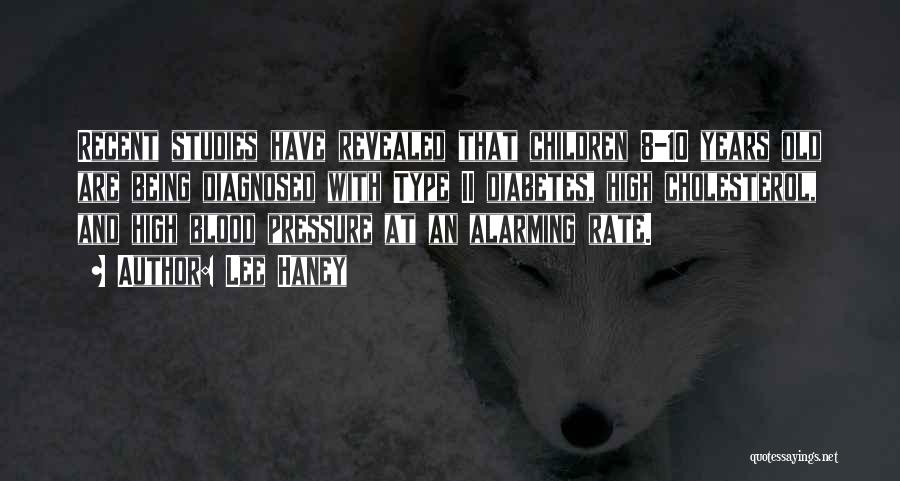
Recent studies have revealed that children 8-10 years old are being diagnosed with Type II diabetes, high cholesterol, and high blood pressure at an alarming rate. — Lee Haney





